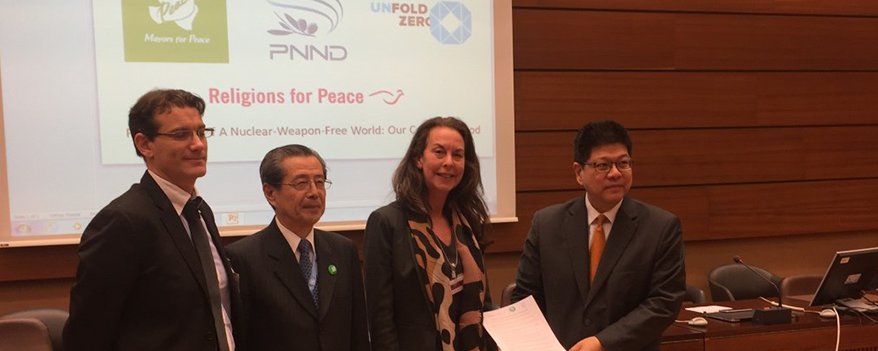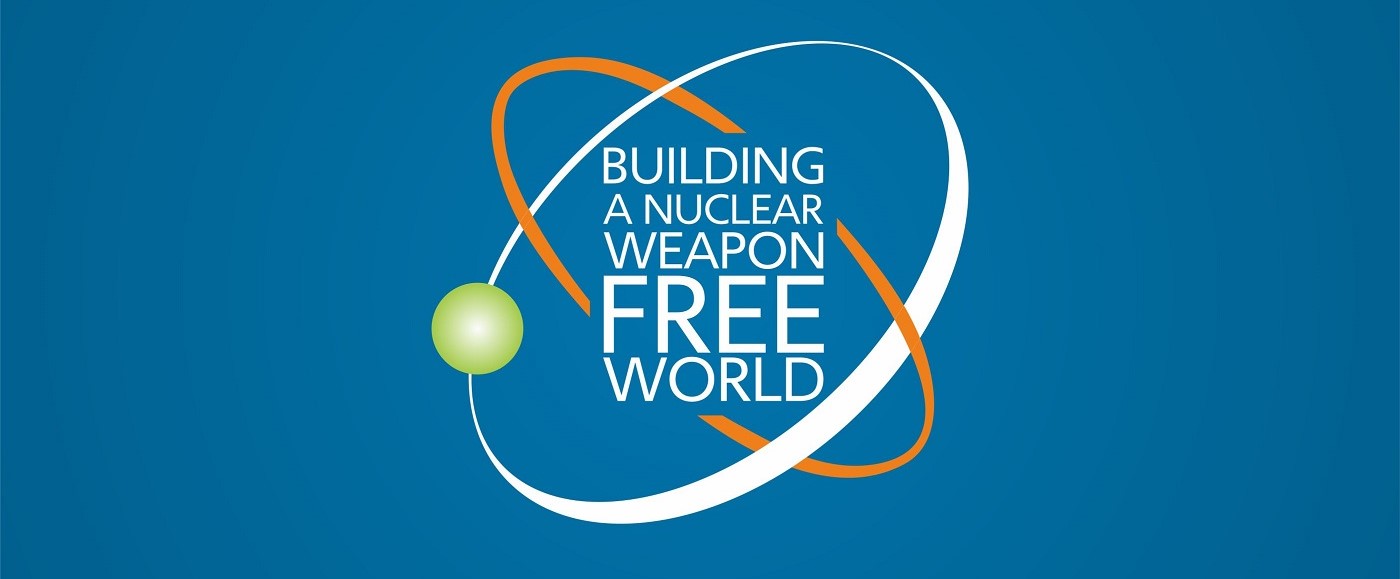Last Friday (August 19) in Geneva, after 15 days of deliberations over 3 months, the UN Open Ended Working group on nuclear disarmament (OEWG) adopted a report with three recommendations that will be forwarded to the United Nations General Assembly (UNGA) for action.
(See: Advance copy of the OEWG report as orally ammended and adopted on August 19).
Two of the recommendations were agreed by all participating governments. These called for:
- additional efforts to elaborate concrete effective legal measures, legal provisions and norm that will be needed to attain and maintain a world without nuclear weapons;
- implementing various measures outlined in the report relating to reducing and eliminating the risks of nuclear weapons use, enhancing transparency about nuclear weapons, and increasing awareness of the humanitarian consequences of nuclear weapons.
The third recommendation, which was controversial, calls on the UNGA to initiate negotiations in 2017 on a legal instrument (treaty) to prohibit nuclear weapons, leading to their elimination. In a recorded vote on the proposal, 62 countries supported (all non-nuclear states), 27 countries opposed (mostly NATO countries plus South Korea), and 8 countries abstained (among them were Sweden, Switzerland and Japan).
Those not supporting this recommendation believe that such negotiations, and the resultant treaty, will have little or no impact on the policies and practices of the nuclear-armed States, and might even be counter-productive. The Representative of Australia, for example, said that ‘It goes without saying that any proposed legal measures on nuclear disarmament needs to have buy-in from those states to be effective. Any alternative approach would only risk deepening the divide between NWS (nuclear-weapon-States) and NNWS (non-nuclear-weapon States).’
However, the governments supporting this recommendation believe that such negotiations are vital, even if the nuclear-armed and nuclear-reliant States (NATO states, Japan, South Korea and Australia) do not participate. They believe that waiting for the these states to agree to start such negotiations, after 20 years of non-action in the Conference of Disarmament, is no longer an option. The Ambassador of Mexico called this recommendation ‘the most significant contribution to nuclear disarmament in two decades.’

Ambassador Thani Thongphakdi, Chair of the OEWG, noted that ‘while there was a difference of opinion on the best way to achieve a nuclear-weapon-free world, all delegations agreed that the increased awareness of the risks and catastrophic consequences of any use of nuclear weapons compel urgent and necessary actions by all States, in cooperation with civil society, to achieve a world without nuclear weapons.’
United Nations follow-up
It is expected that Mexico, and other countries supporting the proposal for multilateral negotiations in 2017, will submit a resolution to the UN General Assembly in October this year. Between now and then they will be trying to increase support, including from the remaining non-nuclear States who have been cautious about the initiative.
The negotiations will be open to all States. It is unlikely that any nuclear-reliant states will support the UN resolution, but some might be persuaded to join the negotiations, or at least not to oppose them. In addition, the negotiations are expected to put pressure on them to take action on other nuclear disarmament measures.
There will also likely be UNGA resolutions on measures referred to in the other two OEWG recommendations. However, some of these measures are more likely to be implemented in other forums or modalities, such as by the nuclear-armed and nuclear-reliant States themselves, or in the next round of preparatory meetings for the Nuclear Non-Proliferation Treaty, which start in 2017.
U.S. President Obama, for example, is currently considering taking unilateral action on some of the measures discussed in the OEWG (de-alerting nuclear weapons systems, adopting a no-first-use policy and rescinding launch-on-warning) with the aspiration that other nuclear-armed States follow-suit.
From the OEWG to Astana
Following the adoption of the report, the Kazakhstan representative to the OEWG announced an international conference in Astana on Building a Nuclear Weapon Free World which will, among other things, discuss the recommendations of the OEWG and how to build international cooperation and traction for their implementation.
Ambassador Thongphakdi will address the conference, which will be held on August 29th, the International Day Against Nuclear Tests. The conference, which will also be addressed by Kazakhstan President Nursultan Nazarbayev, will include a mix of parliamentarians, mayors, government officials, religious leaders, representatives of international organisations and leaders from civil society.Air Jordan 1 Retro High OG ‘Chicago’ White and Black-Varsity Red For Sale

